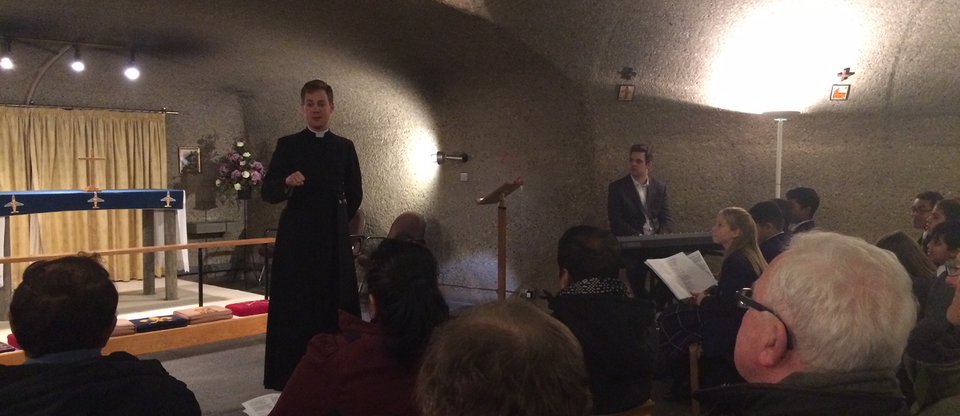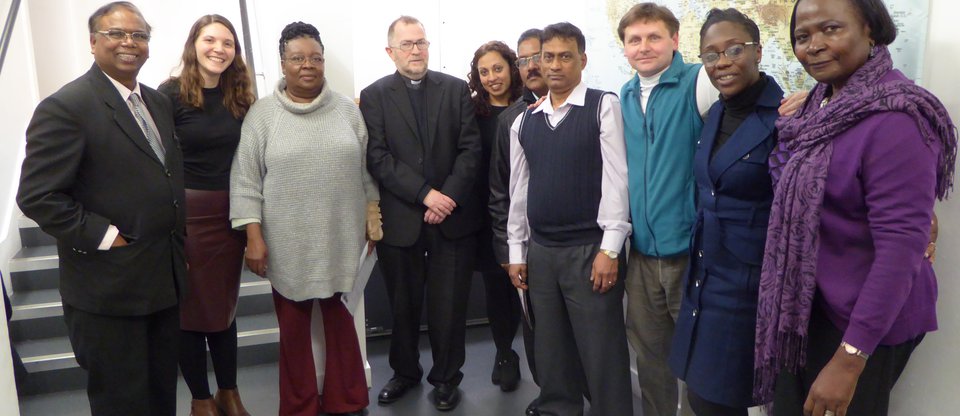Organising around the Living Wage: the story of Heathrow Airport
Last year, we announced the fantastic decision by Heathrow Airport to become the world’s first Living Wage airport, a decision taken by management that ensures the business is doing the right thing and its workers can live in dignity.
I wanted to tell you a bit about the story of how West London Citizens got there, after years of painstaking organising work, in the hope that others can take inspiration from this story in their own Living Wage organising.
In the summer of 2016 West London Citizens (WLC) was campaigning to get Heathrow airport to sign up as a Living Wage employer. The campaign had already been running for two years but needed a boost.

West London Churches holding a living wage mass in support of workers
It was an opportunity to change strategy and put into practice a methodology of organising which focused on helping both in-house staff and contract staff not being paid a real Living Wage.
Fr Gerard, from St Anselm’s church - a member institution - introduced me to the parishioners in his church who worked at the airport. I held one to ones with many of them and in each meeting asked them to introduce me to more workers. The first round of one to one meetings gave me an idea of how the airport operates.
We decided to focus on meeting cleaning staff at Heathrow. My listening at St Anselm’s showed us that these workers were the ones with lowest pay and poorest working conditions. I asked the cleaning staff I met to bring me their rota sheets so we could start charting who works in each terminal, on airside and landside, in the morning, afternoon and night shift. This gave us the opportunity to identify potential leaders in each shift.
One cleaner that people listened to was Sebastian. He quickly became the key worker for this campaign. Sebastian was tenacious, intelligent and respected by the workers and management. He had already won small gains in pay for his workers, through negotiation with the management. He was parishioner at St Anselm’s church and had been involved in the London Living Wage campaign since the beginning.
Sebastian worked with us to organise an open meeting with cleaners and those we had identified as leaders to restart the Living Wage campaign. From this meeting, we started to galvanise many more staff and gather hundreds of signatures from them on a letter to the CEO.
As the campaign snowballed, the management of the airport showed they were willing to listen. Members of the Heathrow campaign team had been in past meetings with the management but when met the airport this time, the airport announced they would sign up to become a Living Wage employer. This was a huge shift from the previous meetings.
In a few months we had made far greater gains that in the previous years because we stopped taking shortcuts and focused on deep organising and building the power of the workers.
My reflection – if the enough workers are organised and determined, working in step with the community, employers are willing to listen and will do the right thing! For community organisers trying to persuade big employers to go Living Wage, you need to build slowly, engage in constructive dialogue and make sure the workers are at the centre of the campaign.

Amanda, former community organiser with West London Citizens and some of the Living Wage Heathrow campaign leaders





